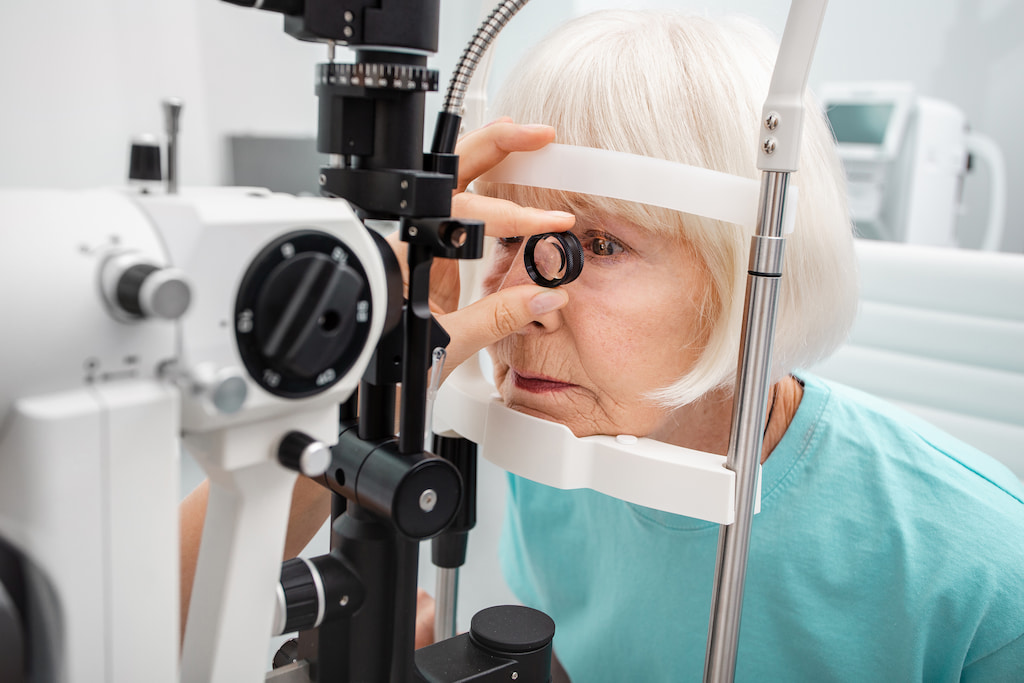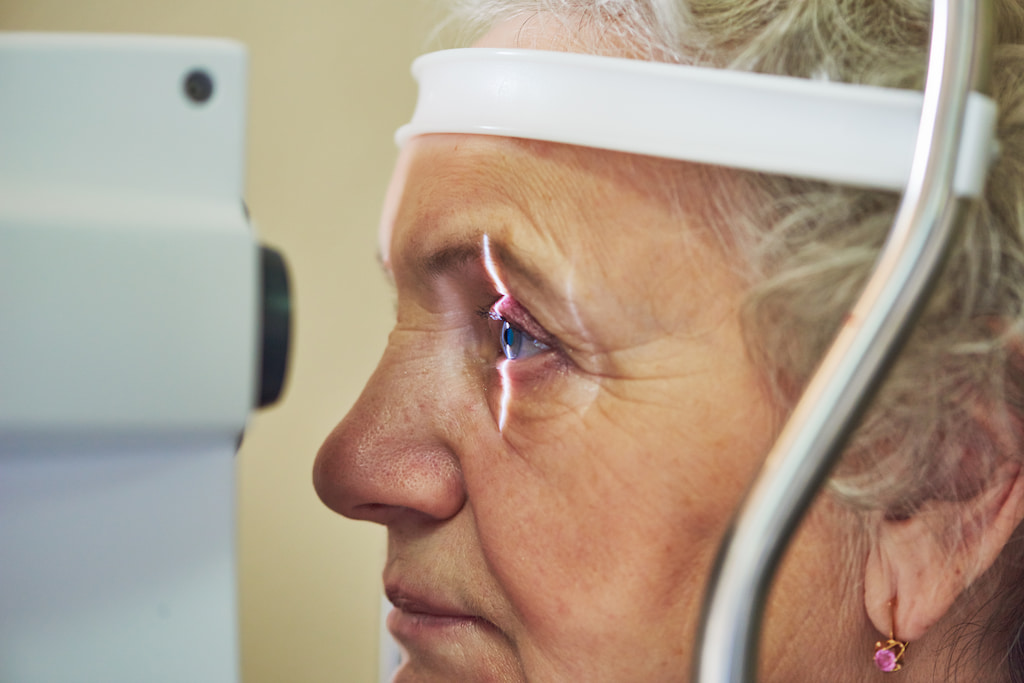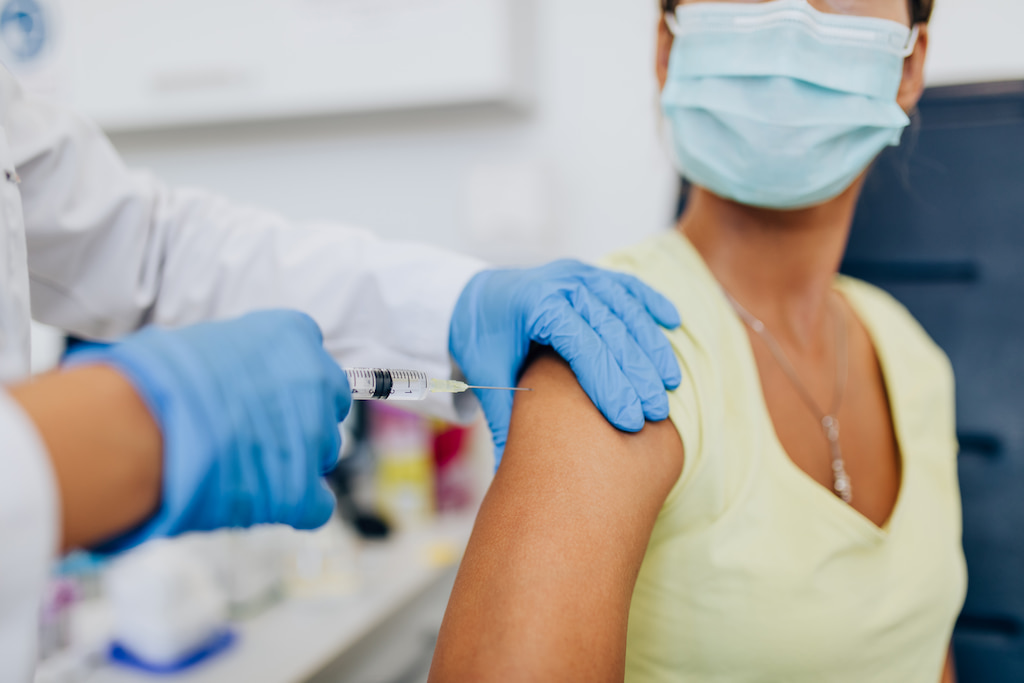
Updated: May 11, 2023
For the large majority of 2020, the world grappled with how to treat and prevent the COVID-19 virus from spreading. You already know that the pandemic has impacted people in many ways, but does COVID affect vision? As more information comes to light, it’s important to note that there is a small percentage of people who get COVID-19 that develop conjunctivitis. Let’s discuss retina eye care and the steps that might be taken to reduce this risk.
COVID affecting the eyes can be daunting to think about, but how does COVID affect the eyes specifically? You might be wondering simple things such as whether should I keep wearing contact lenses during COVID-19. Everyone responds to the virus differently. Some have respiratory problems while others don’t experience any symptoms. Regarding your eye health, pink eye is the most common sign of COVID-19 in children and adults. Those who experience inflammation in the body can develop blood clots that reach the veins, arteries, and blood vessels in the eye.

There is a new study that suggests that there are some people with COVID who will develop eye problems. Covid symptoms affecting the eyes are wide-ranging, but when problems occur, the side effects can be mild or vision-threatening. There are many problems that impact the retina, or a light-sensing layer of cells located in the back of the eye that play a key role in your vision.
If you’re experiencing eye problems after covid, it’s important to seek help from a professional. They may suggest dry eye treatment or other avenues to help reduce symptoms.
Did you know that there is a global increase in nearsightedness, or myopia, due to COVID-19 restrictions? An increase in screen time and “computer vision syndrome” are factors in this scenario. Many of us spend less time outside or in environments where our eyes get breaks from a screen which is a broader concern. Thankfully, myopia vision correction is possible.

If a patient experiences respiratory distress for a long enough period, oxygen deprivation and poor perfusion could result in damage to metabolically active tissues in the optic nerve or retina. In this case, the damage would be the result of decreased oxygen versus getting the virus itself. Those with eyes affected by covid could experience an acute stroke impacting parts of the brain that control vision, however, this is the most extreme and devastating side effect.
In general, the Delta variant is more contagious, but the overall symptoms are similar to those seen with the original strain and other variants. In the Delta variant, cough and loss of taste are less common and it’s more common to experience a runny nose, fever, headache, or sore throat. It’s possible that the Delta virus results in specific eye-related problems, however, it is not certain at this time.
Covid affecting the eyes isn’t common as few people will experience serious complications. However, certain people have a higher chance of developing problems than others. Those with the following conditions are considered to be the most at risk:
When there are eye problems that occur, they usually develop within 1-6 weeks of COVID-19 symptoms. These problems developed in those who were very sick with the virus as well as those who were generally healthy and lacked symptoms. This is the largest study to date on the impact of COVID on the retina, but only 121 patients were examined. Doctors are continuing to learn more about how to prevent any complications.
In the case that you’ve developed any symptoms of COVID-19 and you are noticing any changes in your vision, it’s important to get in touch with an experienced ophthalmologist as soon as possible.
Protecting your eyes and overall health is straightforward as long as you take the right steps. You’ll want to wear a face mask around other people and wash your hands frequently to kill germs. In crowded public areas, you can also socially distance yourself to reduce the risk of transmission. It’s ideal to be overly cautious versus not prepared enough as the potential complications of covid far outweigh any vaccine complications.
Can covid affect your eyes and vision? Even though the risk of complications is low, you’ll still want to do what you can to stay protected. The ocular surface has protective mechanisms including natural lubrication and antimicrobial proteins. Any routine cleaning or flushing of the eyes with water or eye drops isn’t necessary and can strip away the natural protective barriers which in turn increases your risk of infection. If your eyes become red or irritated, you can use over-the-counter artificial tears. If symptoms continue, get in touch with your eye care provider.

Regarding the vaccine, you might be wondering if the covid vaccine affects your eyes. Right now, there is not any evidence that notes that any vaccines cause vision-related side effects. The CDC notes that any vaccine side effects will likely be moderate and they are signs that the body is building protection against the virus. Common side effects include fatigue, chills, muscle pain, fever, nausea, redness, pain, or swelling at the injection site.
Although it is not impossible, the chances of whether covid can affect eyesight are extremely low. If you’re ready to learn more about how we can provide excellent eye care for you, make sure to schedule an appointment with our team today!